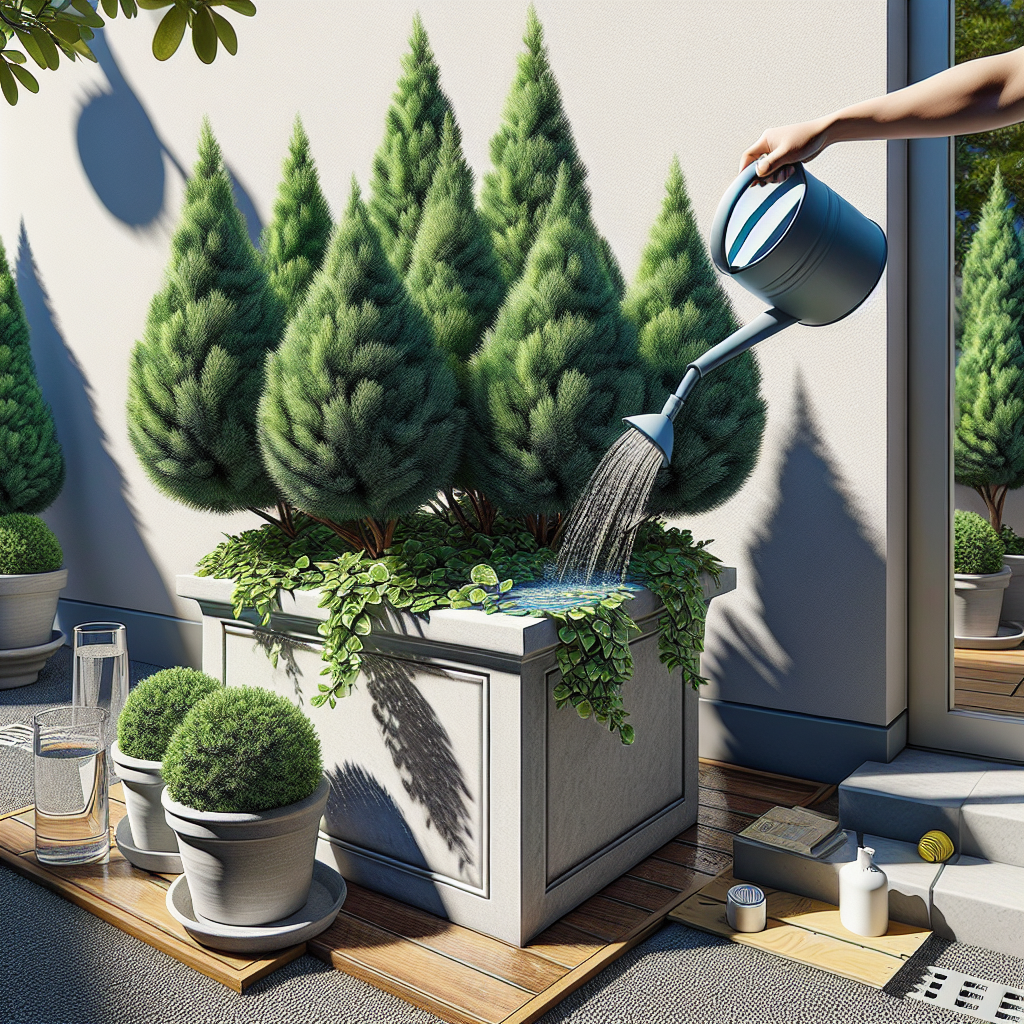Junipers are popular plants known for their ability to thrive in a variety of climates and soil conditions. However, proper care is essential in order to keep these plants healthy and thriving. Container-grown junipers require a different set of practices compared to those planted in the ground. In this article, we will discuss the best practices for caring for junipers in containers.
Selecting the Right Container
The first step in caring for container-grown junipers is selecting the right container. Junipers have deep root systems, so it is important to choose a container that is at least 12 inches deep and has good drainage holes. Plastic, clay, or wood containers are all suitable options for growing junipers.
Choosing the Right Soil
Junipers prefer well-draining soil that is slightly acidic. A good potting mix for junipers can be made by combining equal parts potting soil, perlite, and peat moss. This will ensure that water drains easily from the roots and prevent root rot.
Watering
Proper watering is crucial for container-grown junipers. These plants do not like to sit in wet soil, so it is important to water them only when the top inch of soil feels dry to the touch. Overwatering can lead to root rot, while underwatering can cause the plant to become stressed and susceptible to pests and diseases.
Fertilizing
Junipers are not heavy feeders, but they do benefit from occasional fertilization during the growing season. A balanced fertilizer with equal parts nitrogen, phosphorus, and potassium can be applied every 6-8 weeks during the growing season. Avoid fertilizing in late fall or winter when junipers are dormant.
Pruning
Regular pruning is important for maintaining the shape and health of container-grown junipers. Prune dead or diseased branches as soon as they are noticed, as they can spread disease to healthy parts of the plant. Lightly prune back overgrown branches in early spring before new growth begins.
Pest and Disease Control
Junipers are relatively pest-resistant plants, but they can still be affected by common pests such as spider mites, aphids, and scale insects. Inspect your plants regularly for signs of pests or diseases and treat them immediately with an insecticidal soap or neem oil spray.
Winter Care
In cold climates, container-grown junipers may need some extra care during the winter months. Protect your plants from freezing temperatures by moving them to a sheltered location such as a garage or shed. Mulch around the base of the plant with straw or leaves to help insulate the roots from extreme cold.
Repotting
Over time, junipers may outgrow their containers and become root-bound. Repotting should be done every 2-3 years in early spring before new growth begins. Gently remove the plant from its current pot and loosen up any compacted roots before placing it in a slightly larger container with fresh potting mix.
Overall Care Tips
– Ensure proper drainage by using a container with drainage holes
– Use well-draining soil mix
– Water only when top inch of soil feels dry
– Fertilize periodically during growing season
– Prune dead or diseased branches regularly
– Inspect for pests regularly
– Provide winter protection in cold climates
– Repot every 2-3 years
In conclusion, caring for container-grown junipers requires attention to detail and consistent maintenance practices. By following these best practices for watering, fertilizing, pruning, pest control, winter care, repotting, and overall care tips outlined above, you can ensure that your junipers remain healthy and vibrant throughout their lifespan. With proper care and attention, your container-grown juniper will be a beautiful addition to your garden or outdoor space for years to come!













